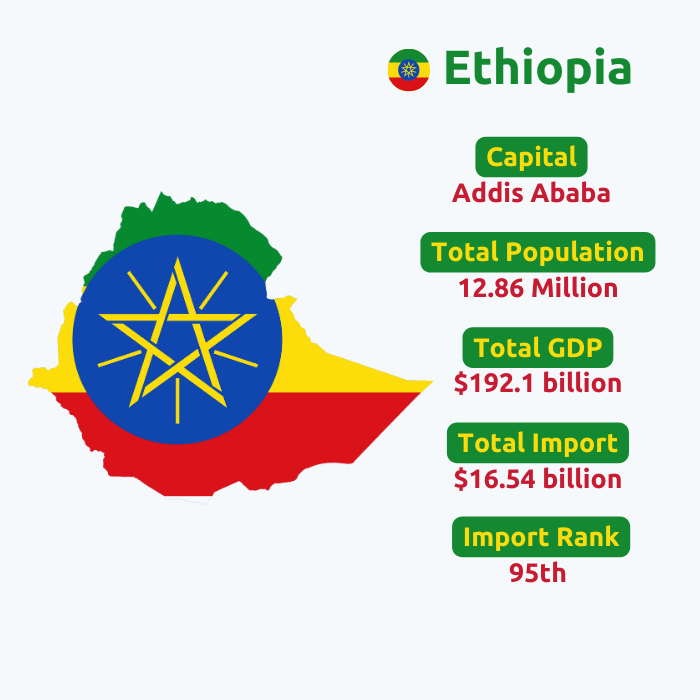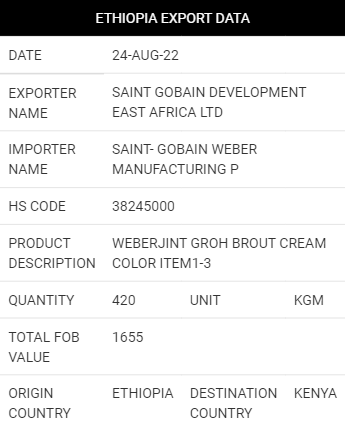Sample Data
Unveiling Ethiopia's Import Data
We obtain trustworthy data from organizations, shipping businesses, and customs ports. This Trade Data
contains a wide range of fields, such as HS codes, product descriptions, prices, quantities, origin country,
destination country, and port names together with currency values. For traders and marketers, this trade data is
crucial information that helps them to make informed decisions. From the HS codes and product descriptions to
the quantity and cost of each product, everything can be obtained through this trade data.
We have included a sample of this trade data for your convenience and greater understanding so
that you can see what the trade data looks like as a whole, with complete details.
Import data serves as a mirror, reflecting a country's economic activity and providing insights into its trade patterns, consumption trends, and industrial strengths. For Ethiopia, import data showcases the nation's demand for goods and services from foreign markets, highlighting the sectors that contribute significantly to the country's growth. Acquiring Ethiopia's import data in 2023 reveals the key sectors driving the country's imports. From machinery and equipment to fuel and lubricants, these sectors manifest Ethiopia's growing infrastructure development and energy needs. According to Ethiopia's customs data for imports, Ethiopia imported goods worth a total of $17.9 billion in 2023. We are providing you with extremely informative and useful Ethiopian import data that is taken from Ethiopia's Customs authority. Our data is derived from recently updated shipping bills, invoices, and other crucial trading documents. We obtain trustworthy data from Ethiopian ports, organizations, and other shipping firms. Ethiopia's custom import data contains several fields, including year, month, HS codes, importer name, product description, price, and quantity, among many other crucial details.
So, as you can see for Ethiopia import-export data, we obtain trustworthy data from organizations, shipping businesses, and customs ports. The trade data contains a wide range of fields, such as HS codes, product descriptions, prices, quantities, origin country, importers/exporters names and addresses, destination country, and port names together with currency values. For traders and marketers, this trade data is crucial information that helps them make informed decisions. From the HS codes and product descriptions to the quantity and cost of each product, everything can be obtained through this trade data. We have included a sample of the trade data for your convenience and greater understanding so that you can see what the trade data looks like as a whole, with complete details.





